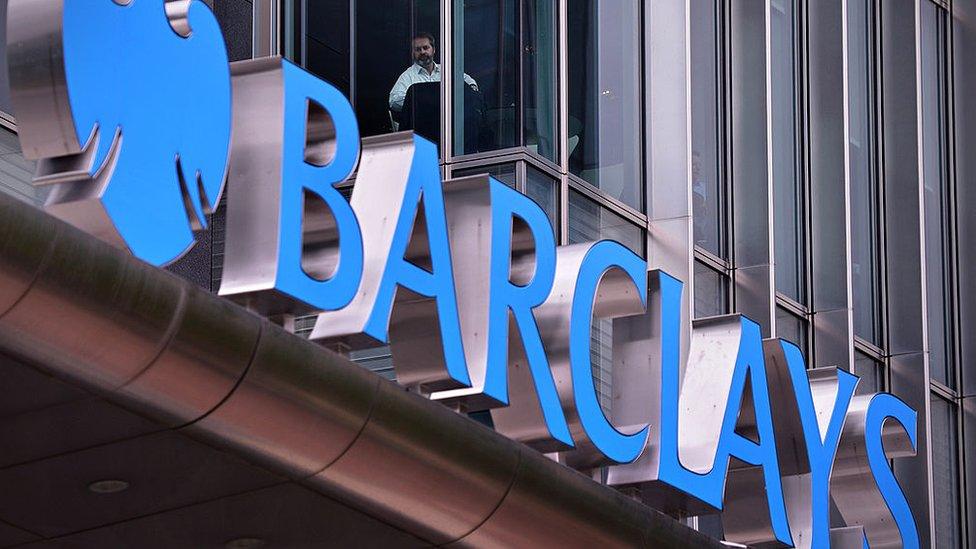Barclays scraps 'Big Brother' staff tracking system
- Published

Barclays says it has scrapped a system that tracked the time employees spent at their desks and sent warnings to those spending too long on breaks.
The bank introduced the computer monitoring system last week, but faced a staff backlash, reported, external by City AM.
Barclays said axing the tracking system was a response to "colleague feedback", but would not say if it was permanent.
The software, Sapience, claims to create "unprecedented transparency" within companies.
"It also determines when an employee goes offline for periods of time," the software firm's website says. A Barclays source said the tool was used to monitor the "effectiveness" of people's time at their desks.
But in addition to sparking unease within the bank, it attracted criticism from privacy campaigners and HR professionals.
Silkie Carlo, director of privacy campaign group Big Brother Watch, said "intrusive monitoring" deprived staff of privacy in the workplace.
"Managers would never get away with breathing down employee's necks, personally monitoring their screens or logging toilet and water breaks," she said. "The availability of technology to [monitor] staff surreptitiously does not make it any more acceptable."
She described the software as "creepy" and called on Barclays to "urgently review" its use.
Barclays said the software was part of a pilot that was rolled out in part of its investment banking division.
But after the City AM newspaper revealed details of the scheme and published damning comments from an employee who spoke to the paper anonymously, Barclays said managers would no longer be able to track the activities of individual workers.
Data protection
In a statement, the bank said: "We always intended to listen to colleague feedback as part of this limited pilot which was intended to tackle issues such as individual over-working as well as raise general productivity."
But Edward Houghton, head of research at Chartered Institute of Personnel and Development, questioned whether it was ever appropriate to use what he described as a "Big Brother" approach to workplace monitoring.
"Technologies like this may actually cause more harm than good," he said. "They can... create mistrust or low levels of trust for employees - employees can feel like they're being watched and not trusted to do their own work effectively."
It is not the first time the bank has come under fire for using technology to monitor its staff.
In 2017, Barclays faced widespread criticism after it installed black boxes under the bankers' desks to track how long they were spending at work.
Campaign group Privacy International said: "Data protection rules are very clear, strict and do not allow employers to carry out such monitoring unless they are able to prove that this is strictly necessary and proportionate and it does not severely impact employees' rights.
"People are entitled to some fundamental rights even if they are in work," it said. "International banks are no exception."
- Published12 April 2019
